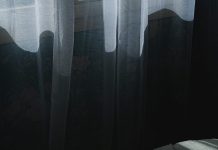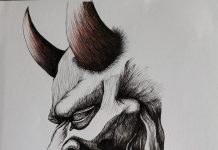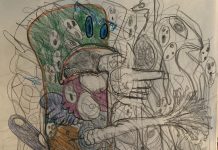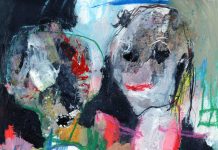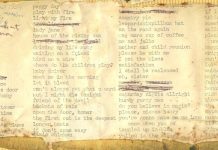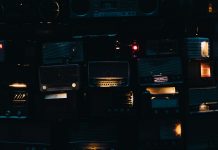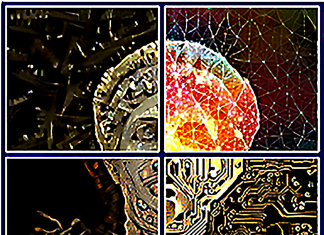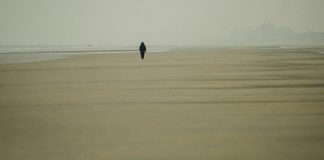When I was nineteen, lost, alone,
depraved and often raving from
the lack of food and meaning,
walking the streets for days
on end after dropping out
of college the better to sink,
an old man stepped up to me
and said, “Don’t look so down.
Hold your head up. Be proud
you’re a human being,” his words
the key to the lock I could not open
by myself and I immediately went to
my secret place, a circular depression
of rocks hidden by trees, wept until empty
and emerged, later, somewhat cured. Today,
at the Sunflower Grocery after work, dirty, tired,
looking for the shortest check-out line, I noticed
one checker four lanes over with no customers,
though all the other lanes were full. But what
attracted me, more than the empty lane, more
than curiosity as to why no one would use her,
was the pure sadness radiating from fifty feet
away. I went down and said, “You look so
unhappy,” as I emptied my cart, hoping to
make a joke of what I assumed was no
more than boredom or disgust at her
crappy job, engage some engagement
of the common exchange I’ve come to
depend on as a substitute for humanity.
But she did not smile, and I noticed she was
very young, very pale, very pregnant, visibly
exhausted, possibly in pain, possibly, ultimately,
alone at the end of the day. As I paid and gathered
my bags, feeling guilty, for she was about to cry, I said
“Take care, now,” but I didn’t tell her to hold her head up,
didn’t say, “Be proud you’re a human being.” Didn’t even say,
“Hang on, kid, you’ll make it.” I wasn’t brave enough to touch
her where she needed to be touched. Or perhaps I knew to do so
would destroy her in the moment, as she had no easy access to
her crying place. No one is a stranger to pain, and some pain
appreciates the lancing; but other pain, at other times,
is too big to be touched at all.


